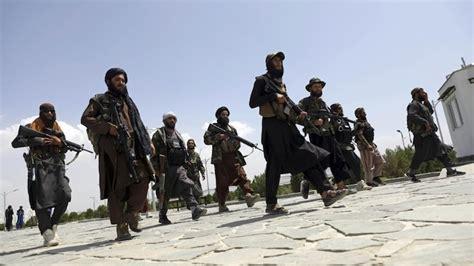
Taliban govt in Kabul allowing outlawed TTP to carry out terror activities in Pakistan, alleges diplomat
For the first time, in public, a senior Pakistani diplomat has claimed that the Afghan Taliban-led government in Kabul was permitting the banned TTP terror group to enter Pakistan, carry out acts of sabotage and massacres, and then leave again, all in the midst of an increase in terror attacks within the nation.
Founded in 2007 as an umbrella organisation for various terrorist groups, the Tehreek-e-Taliban Pakistan (TTP), also known as the Pakistan Taliban, shares ideological ties with the Afghan Taliban. Its primary goal is to impose Pakistan with its rigid interpretation of Islam.
TTP was involved in several terror attacks in Pakistan. In a press conference last week, caretaker Prime Minister Anwaarul Haq Kakar said that 2,267 Pakistani citizens were killed in the past two years due to the attacks by the TTP using Afghan soil.
“We cannot fathom the fact that the TTP people, who are living in Afghanistan, are under their (Afghan Taliban) control. They are allowed to cross the Pakistan border and conduct sabotage activities, massacre and then go back. This is something that is discomforting for us,” Pakistan’s special representative for Afghanistan Asif Durrani was quoted as saying by Express Tribune newspaper on Sunday.
Pakistani officials have often privately spoken about the Afghan Taliban-TTP nexus, but this is the first time a senior official has publicly talked about it, the report said.
Pakistan and Afghanistan have a complex and often turbulent relationship. The two countries share a long and contested border, and there have been conflicts between them for decades, including numerous skirmishes, border disputes, and terrorist activities.
Islamabad had hoped that the Afghan Taliban after coming to power would stop the use of their soil against Pakistan by expelling the TTP operatives, but they have apparently refused to do so at the cost of straining ties with Islamabad.
“For us, the major issue is the TTP,” Durrani said.
Asserting that it was the responsibility of the Taliban government to control the TTP and disarm them, he said the Afghan Taliban could not shy away from that responsibility.
“This is not good for bilateral ties,” Durrani cautioned.
Admitting that Pakistan had misunderstood the relationship between Afghan Taliban and TTP previously, the envoy said the two share a “symbiotic relationship…they are the two sides of the same coin”.
During the US military campaign in Afghanistan, Pakistan had viewed the Afghan Taliban as a national movement struggling against foreign occupation, while termed the TTP as a terrorist outfit.
However, with the Afghan Taliban seizing power in Kabul, the thinking and narrative in Islamabad and Rawalpindi have changed. Now, Pakistan views the TTP as an extension of the Afghan Taliban. Some even suspect that the Afghan Taliban might be using the TTP as a proxy against Pakistan, the report said.
Durrani said around 6,000 TTP terrorists were operating from Afghanistan. Their number goes up to 60,000-65,000 if their families are also counted.
The diplomat said the Afghan Taliban had been saying that they were taking action against the TTP, but “the issue is what practical action they take. That matters”.
In a major policy shift last week, Pakistan has decided not to support the Afghan Taliban’s case at the international level or extend any other assistance following Kabul’s failure to neutralise the banned TTP.
Islamabad has also decided that it will no longer extend any “special privileges” to the interim Afghan Taliban government.
After the Taliban’s return to power, Pakistan emerged as its main backer and advocate, urging the international community and stakeholders particularly the Western countries to stay engaged with the new rulers in Kabul.
Pakistan’s policy of acting as the Afghan interim government’s spokesperson often drew strong criticism both from within and outside the country. However, officials at that time defended the approach, insisting that the Afghan Taliban were a reality and had no other option but to work with them.
Islamabad made efforts with other regional players to ensure that sanctions against the Afghan Taliban government were lifted and Kabul should have access to the funds frozen by the US soon after the fall of Kabul in August 2021.
Also, Pakistan in order to facilitate the Afghan interim government, gave many incentives to Afghanistan in terms of trade and other facilities.
Source » firstpost.com





